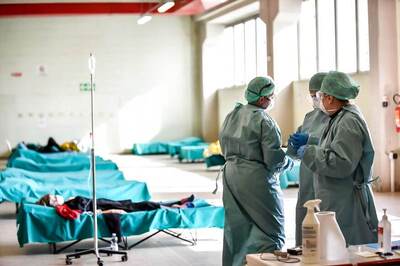
views
Dementia is a neurological disorder characterized by progressive cognitive decline. Frontotemporal dementia is a condition where there is predominant involvement of frontal and temporal lobes of the brain. Frontotemporal dementia is a sub type of frontotemporal lobar degeneration which includes FTD, FTD with ALS and PSP. Although, frontotemporal dementia is most common cause of dementia in the younger age group(age<65). It affects around 15-22 people out of every 100000. Presently there are 1.2-1.8 million people with FTD worldwide.
Frontotemporal dementia(FTD) can present itself as behavioral variant, semantic dementia and Primary non fluent aphasia.
Symptoms of frontotemporal dementia
In the behavioral variant of FTD patient may present with predominant psychiatric manifestation. This is because of involvement of frontal lobe which controls our behavior and personality. The patient may behave inappropriately during social interactions, lack of empathy. They may have poor judgement skills, making rash financial decisions. They may lose interest in personal hygiene. They fail to concentrate on things and tend to get distracted easily. There is a change in food habits and there is a tendency to develop sweet tooth (liking for sweet food). They may make inappropriate sexual advances. They may have compulsive behavior like clapping hands and also complex ritualistic behaviours like watching same movies
The other two variants present with predominant language problems. This variant is called as Primary progressive aphasia which comprises Semantic dementia and Primary Non fluent aphasia. They present with difficulty in speaking, using the right words. They tend to forget names of objects and persons. They may difficulty in reading and writing. They may not understand meanings of words and respond inappropriately to questions.in advanced stages patients may become completely mute.
They may develop motor problems like difficulty in walking, tremors and stiffness if associated with parkinsonism.
Life expectancy in patients with FTD ranges between 7-13 years in multiple studies. Most common causes of death are respiratory disorders (pneumonia, choking), cardiovascular disorders and cachexia.
Causes of Frontotemporal Dementia (FTD)
There is deposition of abnormal proteins called tau proteins in the brain. These cause abnormal functioning of neurons and atrophy of predominantly frontal and temporal lobes. In some there maybe genetic predisposition to develop frontotemporal dementia.
Diagnosis of FTD
Diagnosis is predominantly by history and cognitive assessment. MRI of the brain will show frontal and temporal atrophy. FDG PET scan will show hypo metabolism of frontal and temporal lobes.
Treatment
There is no definite cure for FTD. Patients may be given antidepressants to control the behavioral symptoms. Speech therapy maybe done for patients having language abnormalities.
Read all the Latest Lifestyle News here




















Comments
0 comment